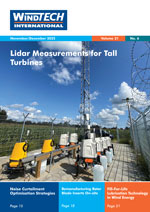The Fundación Renovables has released a guide promoting best practices for offshore wind development along Spain’s coastline. The document, published with support from the Ministry for the Ecological Transition, aims to ensure that offshore wind deployment balances environmental and social impacts while accelerating the energy transition. Spain is expected to launch its first offshore wind auctions later in 2025. The foundation argues that social and economic stakeholders must be involved from the outset to promote broad acceptance of the projects.
Drawing on examples from France, the Netherlands and the UK, the guide outlines four key pillars for responsible offshore wind development:
Community engagement and transparency: Early communication is critical. Developers should establish working groups and information points to ensure transparency and maintain dialogue with local stakeholders. Agreements should include local benefits or incentives.
Fisheries sector cooperation: Offshore wind projects must address their impact on fisheries. Ongoing coordination with fishing cooperatives and local companies is encouraged, along with economic compensation and initiatives like offshore wind tourism to diversify local income.
Tourism and visual impact: Developers should consult with the tourism sector to reduce visual disruption. This can include siting projects farther from shore and using higher-capacity turbines to reduce the number of installations needed.
Biodiversity protection: Projects should be located in areas with the lowest possible ecological impact. Developers are encouraged to adopt quieter, less disruptive technologies and to implement measures to avoid bird collisions and protect marine habitats.
Fundación Renovables stresses that social acceptance must underpin Spain’s offshore wind rollout. The first projects may set the tone for public perception, and the guide is intended to help ensure good practices are not isolated cases, but common standards across the country’s coastal regions.










